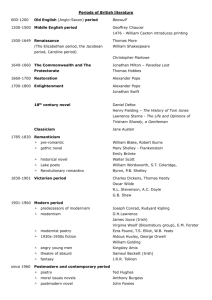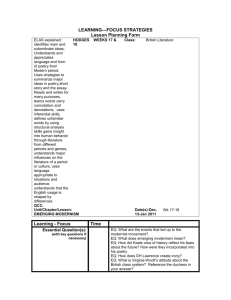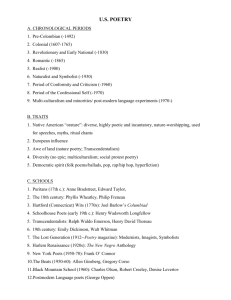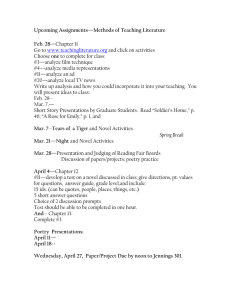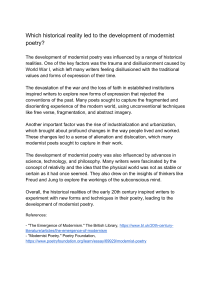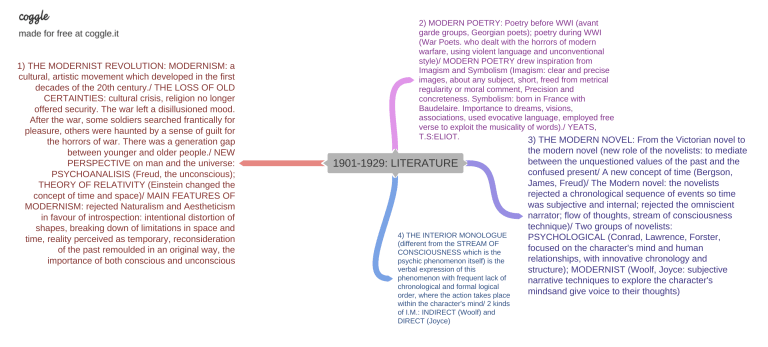
1) THE MODERNIST REVOLUTION: MODERNISM: a cultural, artistic movement which developed in the first decades of the 20th century./ THE LOSS OF OLD CERTAINTIES: cultural crisis, religion no longer offered security. The war left a disillusioned mood. After the war, some soldiers searched frantically for pleasure, others were haunted by a sense of guilt for the horrors of war. There was a generation gap between younger and older people./ NEW PERSPECTIVE on man and the universe: PSYCHOANALISIS (Freud, the unconscious); THEORY OF RELATIVITY (Einstein changed the concept of time and space)/ MAIN FEATURES OF MODERNISM: rejected Naturalism and Aestheticism in favour of introspection: intentional distortion of shapes, breaking down of limitations in space and time, reality perceived as temporary, reconsideration of the past remoulded in an original way, the importance of both conscious and unconscious 2) MODERN POETRY: Poetry before WWI (avant garde groups, Georgian poets); poetry during WWI (War Poets. who dealt with the horrors of modern warfare, using violent language and unconventional style)/ MODERN POETRY drew inspiration from Imagism and Symbolism (Imagism: clear and precise images, about any subject, short, freed from metrical regularity or moral comment, Precision and concreteness. Symbolism: born in France with Baudelaire. Importance to dreams, visions, associations, used evocative language, employed free verse to exploit the musicality of words)./ YEATS, T.S:ELIOT. 3) THE MODERN NOVEL: From the Victorian novel to 1901-1929: LITERATURE 4) THE INTERIOR MONOLOGUE (different from the STREAM OF CONSCIOUSNESS which is the psychic phenomenon itself) is the verbal expression of this phenomenon with frequent lack of chronological and formal logical order, where the action takes place within the character's mind/ 2 kinds of I.M.: INDIRECT (Woolf) and DIRECT (Joyce) the modern novel (new role of the novelists: to mediate between the unquestioned values of the past and the confused present/ A new concept of time (Bergson, James, Freud)/ The Modern novel: the novelists rejected a chronological sequence of events so time was subjective and internal; rejected the omniscient narrator; flow of thoughts, stream of consciousness technique)/ Two groups of novelists: PSYCHOLOGICAL (Conrad, Lawrence, Forster, focused on the character's mind and human relationships, with innovative chronology and structure); MODERNIST (Woolf, Joyce: subjective narrative techniques to explore the character's mindsand give voice to their thoughts)
